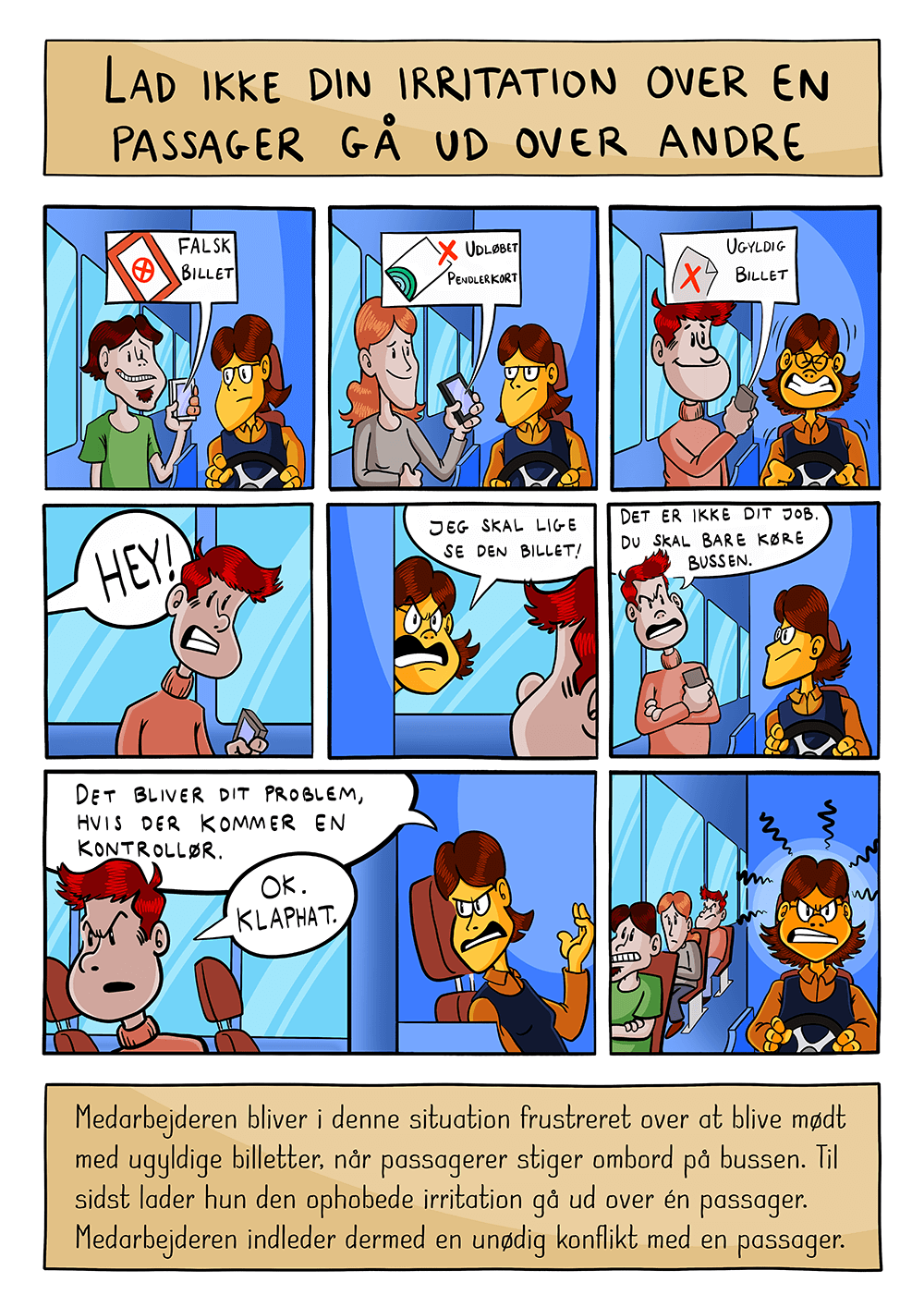Sociological Research Takes Center Stage in Conflict Management Campaign
When sociologists and other social scientists communicate new knowledge, the beaten path is peer-reviewed scientific articles – perhaps supplemented with presentations and media commentary for a wider audience.
But research communication can be much more than that. Why not spread research-based knowledge through short videos and comics – and with the researcher as one of the people explaining the key points?
”The big challenge has been how far I, as a researcher, could popularise my research results […] But yes, you can actually draw a research result.
The campaign ‘Stop the conflict – not the bus’, which has just been launched by BFA Transport (sector working environment council) as part of an industry-oriented effort against violence and threats in passenger transport, shows that it is possible.
And postdoc Camilla Bank Friis from the Department of Sociology plays a leading role:
Together with bus driver Flemming Jacobsen, she provides five tips and practical tools for bus drivers in passenger transport in a series of short videos. Together with her colleague Lasse Liebst, Associate Professor, and illustrator Peter Langkjær Møller, she has also translated classic conflicts between passengers, ticket inspectors and bus drivers into ten comic strips aimed at transport companies and their employees.
You put yourself in play as a researcher
Despite the offbeat formats, the work is backed by solid research evidence. In her PhD and subsequent research, Camilla Bank Friis has analysed many hours of video material with concrete conflict situations in public transport and thereby explored how they typically arise, develop – and often can be avoided.
This includes not acting like a policeman when dealing with ‘difficult’ passengers and avoiding protracted conflicts.
“The big challenge has been how far I, as a researcher, could popularise my research results so that it became relevant to the recipients. But yes, you can actually draw a research result,” says Camilla Bank Friis, who calls the process both fun and educational.
“You put yourself in play as a researcher and enter into dialogue with those who will ultimately use our work. I think the project has become a good example of how a collaboration between university research and external actors can make knowledge useful if you are willing to cut off some of the academic edges. Among other things, it’s about avoiding too many reservations and abstract concepts.”
Classic conflict situations in cartoon format

But even though the messages have been condensed, they are all valid. One example is the video that advises against drivers acting as police officers if a passenger doesn’t have a valid ticket.
“Here we know from my research that ‘justice-focused’ employees tend to be willing to go further in conflicts with passengers than ‘service-orientated’ employees. So if, as in this case, it’s about avoiding conflicts at work, it’s important to explain that it can be more risky to take a justice-focused approach to your work,” explains Friis.
Important to include research
The Department of Sociology has a tradition of entering into projects with external partners, and the skill of working with external partners on specific cases is part of the study programme itself. Camilla Bank Friis’ own research on conflict management is also based on a multi-year collaboration with other actors in the passenger transport sector.
However, it is the use of the researcher as a communicator of her own research results in unusual formats and targeted at a specific industry that makes the new campaign stand out from most other projects where the university collaborates with external actors.
But for BFA Transport, a collaboration between employers and employees, it was a big plus being able to actively involve Camilla Bank Friis and her research:
“The research perspective has the advantage of being objective and data-based. The researcher has not taken sides. This also makes it harder to argue against the recommendations. At the same time, her research is of course very relevant because it looks at passenger transport,” says Marie-Louise Heneberg, team leader at Danish Industry and coordinator of the campaign as part of BFA’s employer secretariat.
She is pleased with the result, which she believes communicates a difficult subject in a straightforward and easy-to-understand way.
“We’ve had a really positive response. The campaign has been successful in reaching drivers and companies in a different way and with messages that most people can use.”

